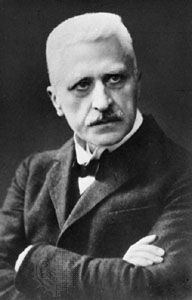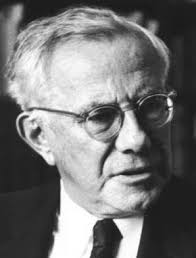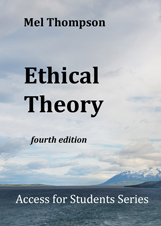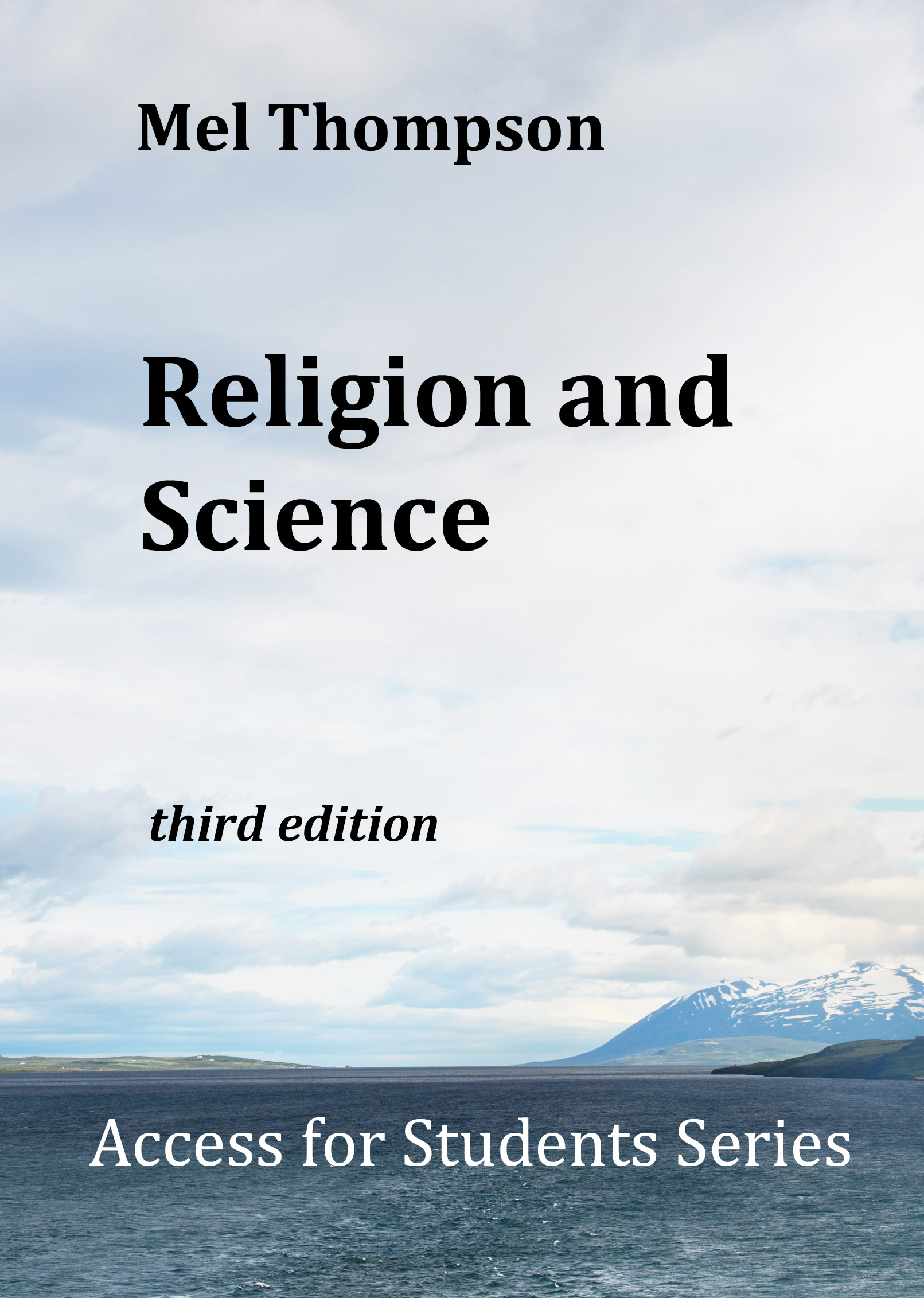An Introduction to Philosophy and Ethics
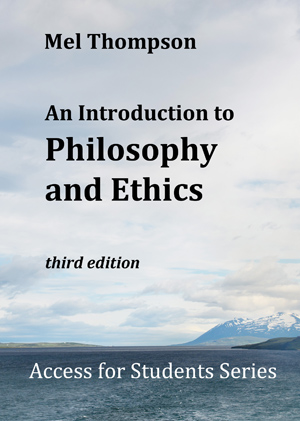
This book was originally designed as a handbook for students preparing for Philosophy of Religion and Ethics papers at AS level, but it contains ideas and arguments that are relevant for anyone interested in the subject.
-
Key people, quotes and ideas appear in boxes, to pick out points of particular interest, and there are also brief profiles of the main thinkers.
-
Each chapter ends with a checklist, questions and suggestions for discussion.
The new book contains the whole basic text of the printed 2nd edition. It represents a solid basis for study and an absolute bargain for all students. Please support this site by using one of these links...
Buy from Amazon in the UKor in the USA
(Paperback £10.99 /$13.99 or e-book £1.99 / $2.99)
Or order it through your local bookshop.
This book won't give you all the answers, but it might just point you in the right direction! (Not that Descartes had all the right answers either.)
Here's the opening of the chapter on religious language:
Points to consider:
Does language have to be literal in order to be meaningful?
Can ‘God’ be described, without ceasing to be God?
TIMELINE
Aquinas 1224 – 1274
Wittgenstein 1898 – 1951
Hick 1922 -
Ayer 1910 - 1989
Flew 1919 -
Tillich 1886 - 1965
Language is about communication. You might be able to mutter things to yourself, using words that are unique to you, but once you try to convey something to other people, you have to use words with an agreed meaning.
If religious language is going to communicate, we have to know how to interpret it, and that is not as obvious as it may at first appear.
1. Some basic features of religious language
Some kinds of language are very straightforward; for example, descriptive language. I might say:
“Buddhist monks wear orange robes.”
It is absolutely clear what I mean. The statement needs to be qualified, for example by saying ‘Some…’ (because there are monks who wear red or black robes), but otherwise it is clear to everyone what is meant, and everyone knows in principle how to check if it is correct – go and find as many monks as possible and check what they’re wearing.
But a religious person might say:
“I have just seen a miracle.”
The truth of this is not at all clear. First of all, the person would need to say what he or she meant by ‘miracle.’ If the definition implied that the event could not be accounted for in the ordinary way, then it would be open to an impartial observer of scientist to check the evidence on which it is based. Two people could witness the same thing; one might call it a miracle, the other might not.
The issue of religious language was highlighted by the work of the Logical Positivists, early in the 20th century. They insisted that the meaning of a statement was given by its method of verification. If you could give evidence to back up what you said, then that evidence was what you statement was all about.
For example: ‘The cat is outside the door’ is a statement that can be proved true of false by taking a look. The meaning of that statement, from the Logical Positivist point of view, is ‘If you open the door and look, you will see the cat.’
They argued that, if you can’t give evidence which would show a statement to be true, then that statement is meaningless.
Much of the modern discussion about religious language has come about because the Logical Positivists argued that it was meaningless. We shall need to look at the claims of the Logical Positivists in a little more detail, but first we need to be clear about some basic features of language.
a. Cognitive and non-cognitive
Cognitive language is language that conveys information. Non-cognitive language may convey emotion, give an order, express hopes and fears – but it does not depend on external facts that can be observed and checked.
A key question:
How much religious language is cognitive and how much non-cognitive?
The philosopher Hume argued that there were only two kinds of statement: those that gave matters of fact, and those that simply explained logic and meanings. In the theory of knowledge, philosophers who believe that all our knowledge starts with experience are called empiricists. Hume was an empiricist, and he therefore regarded the information we gain through the senses as the basic test of truth for all cognitive language. But is language just about conveying what we have experienced, or does it have other functions, especially in connection with religion?
b. Analytic and synthetic statements
An analytic statement simply explains the meaning of its terms; it does not depend on evidence. ‘Red is a colour’ is true in all cases and for all time. Once I know the meaning of the words ‘red’ and ‘colour’ the matter is fixed. It is therefore analytic. All tautologies are analytic.
‘There is ice on the path outside’ is synthetic, because it can only be shown to be true or false with reference to evidence for or against there being ice on the path.
c. ‘Believing in’
If you believe that something is true, it means that – on balance – evidence suggests that the statement corresponds to external reality. If you believing 'in' something, it means that you are committed to it, and that you interpret your experience in the light of that commitment.
So, when a person says that they ‘believe in’ God, they mean far more than simply saying that they believe that God exists. After all, you could believe that God exists as a theoretical possibility, and yet regard such belief as of little importance. On the other hand, to say that a person ‘believes in’ God implies far more than just facts. You believe ‘in’ someone when you are committed to them, admire them and so on. It is therefore clear that all language about ‘believing in’ something, is going to require more than the literal reference to facts, which might have been sufficient for a ‘believing that’ statement.





